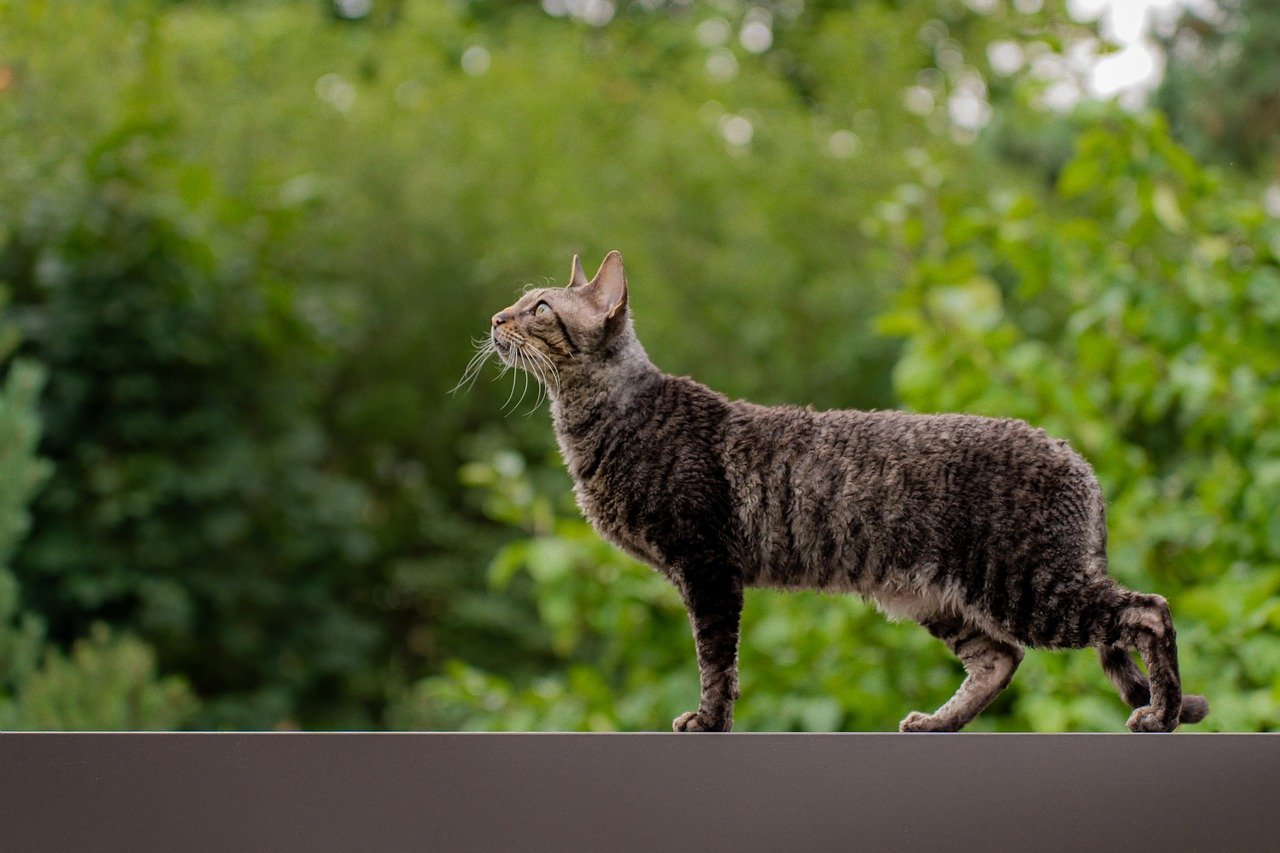Tips for Maintaining Senior Pet Mental Health
As our beloved pets age, their mental health becomes a crucial aspect of their overall well-being. Just like humans, senior pets can experience a range of emotional and cognitive changes that affect their quality of life. It's essential for pet owners to be proactive in maintaining their furry friends' mental health, ensuring they remain happy, engaged, and comfortable in their golden years. This article provides essential tips and insights into ensuring the mental well-being of senior pets, focusing on various strategies to enhance their quality of life as they age.
Recognizing the changes in behavior that come with aging is crucial for pet owners. As pets grow older, they may exhibit shifts in their activity levels, social interactions, and even their preferences for certain activities. For instance, a dog that once loved to play fetch might prefer lounging on the couch instead. These behavioral changes can often indicate underlying issues related to their mental health. It’s important to observe your pet closely and note any significant changes, as they can be signs of anxiety, depression, or cognitive decline.
A safe and comfortable living space can greatly impact a senior pet's mental state. Modifying your home to cater to the needs of older pets can make a world of difference. Simple changes, such as providing easy access to food and water, can help your pet feel more secure. Additionally, consider the layout of your living space to ensure that your pet can navigate comfortably without obstacles. A cozy environment can be a sanctuary for your pet, promoting relaxation and reducing stress.
Designating quiet areas for your pet to retreat can help them feel secure. Just like humans, pets need their own space to unwind and recharge. Creating a safe space, such as a cozy corner with their favorite blanket, can provide them with a sense of safety and comfort. This area should be away from the hustle and bustle of daily life, allowing your pet to relax without disturbances. A well-established safe space can significantly reduce anxiety and promote a sense of well-being.
Selecting appropriate bedding materials can enhance comfort and support. Senior pets often face joint pain or arthritis, making it essential to choose bedding that provides adequate support. Look for orthopedic beds or cushions that conform to their body shape, offering relief from pressure points. A good night's sleep is vital for your pet's mental health, and the right bedding can make all the difference. Consider materials that are easy to clean and hypoallergenic to ensure a healthy resting environment.
Reducing environmental stressors is vital for senior pets. Loud noises, such as thunder or fireworks, can trigger anxiety in older animals. Implementing strategies to minimize noise can create a more serene atmosphere. Consider soundproofing areas of your home or using white noise machines to mask disruptive sounds. Additionally, keeping the environment calm by avoiding sudden movements or loud conversations can help your pet feel more at ease. A tranquil setting is essential for maintaining your pet's mental health.
Keeping a senior pet mentally stimulated is essential for their well-being. Just like us, pets need mental challenges to keep their minds sharp. Engaging them in interactive games, puzzle toys, or training sessions can help maintain cognitive function and prevent boredom. Activities that require problem-solving skills or physical movement can be incredibly beneficial. For instance, consider setting up a treasure hunt with treats or using toys that dispense food to encourage active play. Mental stimulation not only entertains but also strengthens the bond between you and your pet.
Routine veterinary visits are key to monitoring a senior pet's health. Regular check-ups allow veterinarians to assess your pet's physical and mental health, identifying any potential issues early on. During these visits, your vet can provide valuable insights into your pet's behavior and suggest interventions if needed. Don't hesitate to discuss any behavioral changes you've noticed; your observations can help your vet make a more accurate assessment.
Conducting behavioral assessments during vet visits can provide insights into a pet's mental health. Vets can evaluate changes in behavior, such as increased aggression or withdrawal, and determine if they are linked to medical conditions or stressors. Understanding these changes is vital for creating a tailored care plan that addresses your pet's unique needs.
Understanding the role of medications and supplements can aid in managing mental health. Some senior pets may benefit from medications that address anxiety or cognitive decline. Supplements like omega-3 fatty acids or antioxidants can also support brain health. Always consult your veterinarian before starting any new treatment to ensure it’s appropriate for your pet's specific condition.
Maintaining social connections is crucial for a senior pet's mental health. Pets thrive on interaction, whether with their human companions or other animals. Encouraging socialization can help reduce feelings of loneliness and depression. Regularly engaging with your pet through playtime, walks, or simply cuddling can strengthen your bond and enhance their emotional well-being.
Facilitating playtime with other pets can boost a senior pet's mood. Social play is not only enjoyable but also provides mental stimulation. When introducing your senior pet to other animals, ensure that the interactions are supervised and safe. Look for gentle playmates who won’t overwhelm your older pet. This social engagement can spark joy and help maintain a positive outlook on life.
Spending quality time with pet owners can enhance emotional bonds. Simple activities, such as going for leisurely walks, playing games, or even just lounging on the couch together, can significantly improve your pet's mental health. The love and attention you provide are invaluable, so make it a priority to connect with your senior pet daily. Remember, your companionship is one of the best gifts you can give them.
- What are the signs of mental decline in senior pets? Look for changes in behavior, such as increased anxiety, disorientation, or changes in sleeping patterns.
- How can I help my senior pet with anxiety? Creating a calm environment, engaging in regular exercise, and consulting your vet about possible treatments can help.
- Are there specific diets that support mental health in senior pets? Yes, diets rich in omega-3 fatty acids and antioxidants can support brain health.
- How often should I take my senior pet to the vet? It's recommended to schedule veterinary visits at least twice a year for senior pets to monitor their health closely.

Understanding Senior Pet Behavior
As our furry companions age, it's essential to recognize that their behavior can change significantly. Just like humans, senior pets experience a variety of physical and mental changes that can affect how they interact with the world around them. Understanding these shifts is crucial for pet owners who want to ensure their beloved animals maintain a good quality of life. For instance, you might notice your once playful puppy is now more inclined to nap than to chase after a ball. This shift isn’t just a sign of laziness; it often indicates that their energy levels have decreased, and they may require more rest.
Common behavioral changes in senior pets can include increased anxiety, confusion, or even aggression. These changes can be distressing for both the pet and the owner, leading to a ripple effect in the household. Imagine a once-friendly dog that suddenly becomes snappy; this can be alarming. It's essential to recognize that such behavior may stem from discomfort, pain, or even cognitive decline. Keeping an eye on these signs can help you address potential issues before they escalate.
One of the most common conditions affecting senior pets is Canine Cognitive Dysfunction Syndrome (CDS), akin to dementia in humans. Pets with CDS may exhibit signs of disorientation, disrupted sleep patterns, and changes in their interaction with family members. For instance, they might forget where their food bowl is or become confused about how to get outside. This confusion can lead to anxiety, which further exacerbates their mental health state. Understanding these symptoms is the first step toward providing the necessary support and care.
Moreover, changes in appetite or sleeping patterns can also indicate underlying issues. If your pet suddenly refuses to eat their favorite treats or seems restless at night, it could be a sign of discomfort or stress. You should keep a close eye on these behaviors and consult with a veterinarian if you notice any significant changes. Regular check-ups can help identify any health problems early on, ensuring your senior pet receives the care they need.
In summary, understanding senior pet behavior is crucial for fostering their mental well-being. By being attentive to their needs and recognizing the signs of aging, you can create a nurturing environment that promotes happiness and comfort. Remember, your senior pet relies on you to be their advocate, so stay informed and proactive in addressing their changing behaviors.

Creating a Comfortable Environment
Creating a comfortable environment for your senior pet is not just about luxury; it’s about ensuring their mental well-being and overall happiness as they age. As pets grow older, their needs change, and it’s crucial to adapt their surroundings to cater to these changes. Think of it as setting up a cozy nest for a wise old owl—one that provides security, comfort, and a sense of belonging. A few thoughtful adjustments can make a world of difference in how your pet feels day in and day out.
First and foremost, consider the layout of your home. Senior pets often experience mobility issues, which means navigating stairs or tight spaces can be challenging. To make their life easier, try to create a single-level living space where they can freely roam without the fear of slipping or getting stuck. If your home has multiple levels, ensure that their essentials—like food, water, and bedding—are conveniently located on the same floor. This small change can significantly reduce their stress levels, allowing them to feel more secure.
Designating specific areas in your home where your senior pet can retreat is another vital aspect of creating a comfortable environment. Think of these spaces as sanctuaries where they can relax and recharge. A quiet corner with their favorite blanket or a cozy bed can work wonders. It’s important to make these areas free from disturbances, such as loud noises or bustling activity, so your pet can unwind without feeling anxious. Remember, just like us, pets need their own little hideaways to feel safe and calm.
When it comes to bedding, comfort is key. Older pets often suffer from joint pain or arthritis, so selecting the right materials can enhance their quality of sleep. Look for orthopedic beds that offer support and cushioning. Consider options made from memory foam or those that provide extra warmth during colder months. Investing in good bedding is like giving your pet a soft cloud to rest on—something that can make their days a little brighter.
Another essential factor is minimizing noise and distractions in your home. Senior pets can be sensitive to loud sounds, which can lead to anxiety. Simple measures like using rugs to dampen sound or keeping the television volume low can create a more peaceful environment. If your pet seems particularly jumpy, consider using white noise machines or calming music to help mask sudden noises from outside. Just think of it as creating a soothing soundtrack to their life, where they can enjoy their surroundings without feeling overwhelmed.
In conclusion, creating a comfortable environment for your senior pet is about more than just physical comfort; it’s about fostering a sense of security and well-being. By making small adjustments to your home, you can significantly enhance their quality of life. After all, our pets deserve a space where they can feel loved, safe, and happy as they navigate their golden years.
Safe Spaces for Relaxation
Creating safe spaces for your senior pet is one of the most considerate things you can do to enhance their mental health. As pets age, they often become more sensitive to their surroundings, and a little corner of tranquility can make a world of difference. Imagine how you feel after a long day when you can finally retreat to your favorite spot in the house. Your furry friend deserves that same comfort and peace.
To start, consider designating a specific area in your home where your pet can feel secure and relaxed. This space should be away from the hustle and bustle of daily life—think of it as their personal sanctuary. You can achieve this by using soft bedding, blankets, and even a few of their favorite toys to make the space inviting. A cozy nook away from loud noises and foot traffic can help your pet unwind and recharge.
Another important aspect is ensuring that this safe space is easily accessible. Senior pets may have mobility issues, so placing their relaxation area on the main floor of your home can prevent unnecessary strain. If you have stairs, make sure they have access to their safe space without having to navigate tricky steps. A simple ramp can also be a great addition to help them get around more easily.
Additionally, consider the environment around their safe space. Minimizing noise and distractions is crucial. You can achieve this by using soundproofing materials, such as rugs or curtains, to absorb noise. If your pet is particularly sensitive to sounds like thunder or fireworks, a white noise machine can provide a calming background sound that helps drown out sudden noises. Also, keeping the area dimly lit can create a soothing atmosphere, making it a perfect retreat for your pet.
Finally, don’t forget to spend some quality time in this safe space with your pet. Your presence can be incredibly comforting. Whether it’s cuddling up with a book or simply sitting quietly together, your companionship can help alleviate any anxiety they may feel. Just like humans, pets thrive on love and attention, especially as they age. Creating a safe haven is not just about providing a physical space; it’s about fostering an emotional connection that reassures them they are loved and secure.
- What materials are best for creating a comfortable bed for my senior pet? Look for orthopedic beds that provide support, or soft, plush blankets that can be easily washed.
- How can I tell if my pet is feeling anxious in their space? Signs of anxiety can include excessive barking, pacing, or refusal to settle down in their designated area.
- Should I change my pet's safe space as they age? Yes, as pets age, their needs may change. Regularly assess their comfort and accessibility.
Choosing the Right Bedding
When it comes to ensuring the comfort of your senior pet, is crucial. Just like us, our furry friends need a cozy, supportive place to rest their weary bones. As pets age, they may develop joint issues or arthritis, making it essential to select bedding that offers adequate support and comfort. Think of it as creating a plush cloud for your beloved companion to sink into after a long day of napping and gentle play.
There are several factors to consider when selecting the perfect bedding for your senior pet. First, look for materials that provide optimal support. Orthopedic beds are specifically designed to cushion joints and distribute weight evenly. This can significantly reduce discomfort and promote better sleep quality. Look for memory foam options that contour to your pet’s body, alleviating pressure points, much like a supportive mattress does for humans.
Another important aspect is the size of the bed. Make sure to choose a bed that allows your pet to stretch out comfortably. A cramped space can lead to restlessness, which is the last thing you want for your aging buddy. If your pet enjoys curling up, consider a bed with raised edges, which can provide a sense of security while still allowing them to stretch when needed.
Don't forget about the material of the bedding as well. Look for options that are easy to clean and maintain. Senior pets can sometimes have accidents, and a bed that can be washed easily will save you from a lot of stress. Additionally, hypoallergenic materials can be a great choice to avoid any skin irritations or allergies, especially if your pet is prone to sensitivities.
Lastly, consider the temperature regulation of the bedding. Older pets can be more sensitive to temperature changes, so choosing a bed that offers warmth during colder months and breathability during warmer months is key. Some beds even come with cooling gel layers to help maintain a comfortable temperature.
In summary, the right bedding can make a world of difference in your senior pet's life. Here’s a quick rundown of what to keep in mind:
- Support: Look for orthopedic or memory foam options.
- Size: Ensure there’s enough space for comfort.
- Material: Choose easy-to-clean and hypoallergenic fabrics.
- Temperature Regulation: Opt for beds that keep your pet cozy and cool.
By investing time and thought into selecting the right bedding, you’re not just providing a place for your pet to sleep; you’re enhancing their quality of life during their golden years. After all, a happy, well-rested pet is a healthy pet!
Q: How often should I replace my senior pet's bedding?
A: It's a good idea to replace your senior pet's bedding every 1-2 years, or sooner if it shows signs of wear and tear. Keeping their sleeping area fresh and clean is important for their health.
Q: Can I use human bedding for my senior pet?
A: While some human bedding can be suitable, it's best to choose bedding specifically designed for pets, as these often provide better support and are easier to clean.
Q: What if my pet has allergies?
A: If your senior pet has allergies, look for hypoallergenic bedding materials that are less likely to irritate their skin and respiratory system.
Minimizing Noise and Distractions
As our beloved pets age, their sensory perceptions can change significantly, making them more sensitive to their surroundings. This is why in your home is crucial for maintaining their mental well-being. Imagine living in a bustling city where the sounds of traffic and construction are constant; it would be overwhelming, right? Now, think about how your senior pet feels when faced with similar distractions. By creating a tranquil environment, you can help your furry friend feel more at ease and secure.
Start by identifying the sources of noise in your home. Common culprits might include loud appliances, barking dogs from the neighbors, or even the hustle and bustle of family life. Once you know what to address, you can take steps to reduce these disturbances. For instance, consider using area rugs or carpets to help absorb sound, or rearranging furniture to create a quieter space. Additionally, if you have a television or music playing, try to keep the volume at a reasonable level, especially during the times when your pet is resting or sleeping.
Another effective strategy is to create a designated quiet zone in your home. This space should be away from high-traffic areas and loud noises, providing your pet with a calm retreat. You can enhance this area by using soft bedding, as mentioned earlier, and ensuring it's stocked with their favorite toys. This way, your pet knows they have a safe haven to escape to whenever the world outside becomes too overwhelming.
Sometimes, even the sounds of nature can be unsettling for older pets. If your pet seems anxious during thunderstorms or fireworks, consider investing in white noise machines or calming music specifically designed for pets. These tools can drown out sudden loud noises and create a soothing atmosphere. Just like how a gentle lullaby can help a baby sleep, the right sound environment can do wonders for your senior pet's comfort.
Finally, don't underestimate the power of routine. Establishing a consistent daily schedule for feeding, walks, and playtime can help reduce anxiety in senior pets. When they know what to expect, they are less likely to be startled by unexpected noises or disruptions. Just like us, pets thrive on familiarity and predictability, which can significantly contribute to their overall mental health.
In summary, minimizing noise and distractions in your home is a vital step in ensuring the mental well-being of your senior pet. By creating a peaceful environment, identifying and mitigating noise sources, and establishing routines, you can help your furry companion feel more secure and relaxed as they navigate their golden years.
- How can I tell if my senior pet is stressed? Look for signs such as excessive barking, hiding, changes in eating habits, or destructive behavior. These can indicate that your pet is feeling anxious or overwhelmed.
- What types of bedding are best for senior pets? Choose soft, supportive bedding that alleviates pressure points. Orthopedic beds are a great option for older pets with joint issues.
- Can noise reduction really help my pet? Yes, reducing noise can lower anxiety levels and promote a sense of safety, which is particularly important for senior pets who may be more sensitive to their environment.
Engaging in Mental Stimulation
Mental stimulation is like a workout for your senior pet's brain, and just like us, our furry friends need to keep their minds sharp as they age. As a pet owner, you might be wondering how you can help your beloved companion stay mentally active. Engaging in mental stimulation not only combats cognitive decline but also enhances their overall quality of life. Think of it as giving them a fun puzzle to solve or a game to play—something that keeps them curious and alert!
One of the best ways to stimulate your senior pet's mind is through interactive toys. These toys often require problem-solving skills, encouraging your pet to think critically about how to access a treat or toy hidden inside. You can find a variety of options in pet stores or online, ranging from simple treat-dispensing balls to more complex puzzle boxes. Introducing these toys into your pet's routine can make playtime exciting and rewarding.
Another fantastic way to keep your pet's mind engaged is through training sessions. Yes, even senior pets can learn new tricks! Teaching them commands or tricks not only reinforces their training but also strengthens the bond between you and your pet. Use positive reinforcement techniques, like treats or praise, to motivate them. Remember, the goal is to make it fun and enjoyable, so keep the sessions short and filled with enthusiasm!
Additionally, consider incorporating some scent games into your pet's daily routine. Dogs, in particular, have an incredible sense of smell, and you can harness that by hiding treats around the house for them to find. This not only stimulates their mind but also taps into their natural instincts, making it a fulfilling activity. You can set up a little scavenger hunt by placing treats in various locations, encouraging them to use their noses to sniff them out.
Finally, don't underestimate the power of social interaction. Engaging with other pets or even inviting friends over for a pet playdate can provide mental stimulation through socialization. Watching other animals play, sniffing new scents, and interacting with different personalities can be incredibly enriching for your senior pet. Just ensure that any playtime is safe and supervised, especially if your pet has mobility issues.
In conclusion, mental stimulation is vital for maintaining your senior pet's cognitive health. By incorporating interactive toys, training sessions, scent games, and social interactions into their daily lives, you can help keep their minds sharp and spirits high. Remember, a happy pet is a healthy pet, and the effort you put into engaging their minds will pay off in the form of a joyful, more content companion!

Regular Veterinary Check-ups
Routine veterinary visits are not just a formality; they are a lifeline for your senior pet's health. As pets age, their bodies undergo various changes that can impact their overall well-being. Regular check-ups help in early detection of potential issues, ensuring that your furry friend remains healthy and happy. Just like we humans need our annual health screenings, pets require consistent monitoring to catch any signs of illness before they escalate. This proactive approach can lead to better treatment outcomes and, ultimately, a longer, more fulfilling life for your beloved companion.
During these visits, veterinarians assess multiple aspects of your pet's health, including weight, dental health, and mobility. They may also perform blood tests or other diagnostic procedures to evaluate organ function and detect any underlying conditions. By keeping a close eye on these factors, you can help prevent serious health problems, such as kidney disease or arthritis, from taking their toll on your senior pet.
Moreover, it’s essential to discuss any behavioral changes you’ve noticed at home with your vet. Changes in appetite, energy levels, or social interactions can be significant indicators of mental health issues. Being observant and communicating openly with your veterinarian can make all the difference in your pet's care. Remember, your vet is not just there to treat immediate problems; they can also offer valuable advice on how to enhance your pet's quality of life.
During vet visits, behavioral assessments can provide deep insights into your pet’s mental health. These evaluations help identify any cognitive decline or anxiety that may be affecting your senior pet. Often, vets will observe your pet's demeanor and behavior in the clinic, looking for signs of stress or discomfort. They may ask you questions about your pet's behavior at home, including:
- Changes in sleeping patterns
- Increased irritability or aggression
- Loss of interest in previously enjoyed activities
By gathering this information, veterinarians can formulate a comprehensive picture of your pet's mental and emotional state, allowing for tailored recommendations that suit their unique needs.
Understanding the role of medications and supplements can be crucial in managing your senior pet's mental health. If your veterinarian identifies anxiety or cognitive decline, they may recommend specific treatments that can help. For instance, medications such as anxiolytics can alleviate anxiety, while cognitive enhancers may improve memory and learning abilities. Additionally, certain supplements, like omega-3 fatty acids, have been shown to support brain health in aging pets. Always consult with your vet before starting any new treatment to ensure it's safe and appropriate for your pet.
In conclusion, regular veterinary check-ups are vital for maintaining your senior pet's health. By staying informed and proactive, you can help your furry friend enjoy their golden years to the fullest. So, don’t wait for a problem to arise—schedule those check-ups and keep the lines of communication open with your veterinarian!
Behavioral Assessments
When it comes to ensuring the mental well-being of our beloved senior pets, play a pivotal role. These assessments are not just routine checks; they are essential insights into your pet's mental health. During a veterinary visit, your vet will observe and evaluate various behaviors that may indicate underlying issues. For instance, has your pet become more withdrawn or less responsive to commands? Are they exhibiting signs of anxiety, such as excessive barking or pacing? These behavioral changes can be subtle yet significant, and recognizing them early can lead to timely interventions.
Veterinarians often utilize a variety of techniques during these assessments. They might ask you specific questions about your pet's daily habits, mood changes, and interactions with family members or other pets. This information is crucial in painting a complete picture of your pet's mental state. Some common areas of focus during behavioral assessments include:
- Social Interactions: How does your pet interact with other animals and humans? Are they friendly, or do they seem anxious?
- Activity Levels: Is your pet more lethargic than usual, or are they still active and playful?
- Response to Stimuli: How does your pet react to noises, movements, or changes in their environment?
- Eating and Sleeping Patterns: Any changes in appetite or sleep can be indicators of stress or discomfort.
Through these observations, veterinarians can identify signs of cognitive dysfunction, anxiety disorders, or other mental health issues that are common in senior pets. They may also recommend specific tests or screenings to rule out any medical conditions that could be contributing to behavioral changes. Remember, a proactive approach is essential. The more you communicate with your vet, the better equipped they will be to help your furry friend navigate their golden years with joy and comfort.
In conclusion, regular behavioral assessments are not just a checkbox on the vet’s list; they are a gateway to understanding and enhancing your senior pet's quality of life. By staying attuned to their needs and behaviors, you can ensure that your pet receives the care and attention they deserve, keeping their spirits high as they age gracefully.
- How often should I take my senior pet for behavioral assessments? It's recommended to have a behavioral assessment at least once a year, but more frequent visits may be necessary if you notice any changes in behavior.
- What should I do if my pet exhibits sudden behavioral changes? Consult your veterinarian immediately, as sudden changes can indicate health issues that need to be addressed.
- Can behavioral assessments help with anxiety in senior pets? Yes, they can help identify the root causes of anxiety, allowing for appropriate treatment or behavioral modification strategies.
Medications and Supplements
As our beloved pets age, just like us, they may experience a variety of mental health challenges that can affect their overall quality of life. Understanding the role of is crucial in managing these issues effectively. Many pet owners may feel overwhelmed by the options available, but fear not—this section aims to clarify how these treatments can benefit your senior pet.
First and foremost, it's essential to consult with your veterinarian before starting any medication or supplement regimen. Your vet can provide tailored recommendations based on your pet's specific needs, health status, and any existing medical conditions. Some common medications prescribed for senior pets include anti-anxiety drugs, antidepressants, and medications to improve cognitive function. These can help alleviate symptoms of anxiety, depression, or cognitive dysfunction syndrome (CDS), which is somewhat akin to dementia in humans.
In addition to medications, there are various supplements that can support your pet's mental health. These often include:
- Omega-3 Fatty Acids: Known for their anti-inflammatory properties, these supplements can also promote brain health.
- Antioxidants: Supplements rich in antioxidants can help combat oxidative stress, which is linked to cognitive decline.
- Herbal Remedies: Some herbal supplements, like valerian root or chamomile, may have calming effects, helping to ease anxiety.
When considering the right medications or supplements, it’s crucial to monitor your pet for any side effects. Just like humans, pets can react differently to treatments. Keep an eye out for changes in behavior, appetite, or energy levels, and report any concerns to your veterinarian immediately. Regular follow-ups will help ensure that the treatment is effective and that your pet is comfortable.
Moreover, combining medications and supplements with behavioral therapies, such as training or enrichment activities, can yield even better results. Think of it as a holistic approach to your pet's mental health, where each component works in harmony to create a happier, healthier life for your furry friend.
In summary, medications and supplements can play a vital role in maintaining the mental well-being of senior pets. With the right guidance from your veterinarian, you can navigate the myriad of options available and find the perfect balance to keep your pet thriving in their golden years.
Q1: What should I do if I notice behavior changes in my senior pet?
A1: If you observe any significant changes in your pet's behavior, it’s essential to consult your veterinarian. They can help identify any underlying issues and recommend appropriate treatments.
Q2: Are there any risks associated with medications for senior pets?
A2: Yes, senior pets may have different sensitivities to medications. Always discuss potential side effects with your vet and monitor your pet closely after starting any new treatment.
Q3: How long does it take for medications and supplements to work?
A3: The time it takes for medications and supplements to show effects can vary. Some may provide immediate relief, while others might take weeks to show noticeable improvements. Patience and regular vet check-ups are key.

Socialization and Interaction
Maintaining social connections is crucial for a senior pet's mental health. Just like humans, our furry friends thrive on interaction and companionship. As pets age, they may become less active and more withdrawn, which can lead to feelings of loneliness and anxiety. Imagine how you would feel if you were suddenly isolated from your loved ones; it's no different for our pets. Socialization helps to keep their spirits high and their minds engaged. So, how can we encourage our senior pets to socialize more?
First and foremost, facilitating playtime with other pets can significantly boost a senior pet's mood. Engaging in play not only provides physical exercise but also stimulates their minds. However, it's important to manage these interactions carefully. Not every pet is comfortable with rambunctious play, so observing their behavior and ensuring that playmates are compatible is vital. For instance, a gentle game of chase or a slow-paced tug-of-war can be perfect for older pets who may not have the energy for high-intensity activities. Here are some tips to consider:
- Choose the Right Playmates: Look for other pets that are calm and gentle, as aggressive or overly energetic animals can overwhelm a senior pet.
- Monitor Interactions: Always supervise playtime to ensure that it remains safe and enjoyable for both pets.
- Mix Up Activities: Incorporate different types of play, like fetch or hide-and-seek, to keep things interesting.
Moreover, spending quality time with pet owners can enhance emotional bonds. Just like you cherish moments with your friends and family, your senior pet craves that special time with you. Simple activities like cuddling on the couch, going for leisurely walks, or even engaging in training exercises can create lasting memories. Think of it as a mini-adventure for both you and your pet! By prioritizing these moments, you reinforce their sense of security and love.
Additionally, consider organizing small gatherings with other pet owners. This not only allows your pet to socialize with other animals but also provides a chance for you to connect with fellow pet lovers. Whether it’s a backyard barbecue or a visit to a local dog park, these interactions can be enriching for both you and your pet. Remember, the goal is to create an environment where your senior pet feels safe and happy, surrounded by friends—both furry and human.
In conclusion, socialization and interaction are essential components of a senior pet's well-being. By facilitating playtime with other pets and spending quality time with your furry friend, you can help maintain their mental health and overall happiness. After all, a happy pet is a healthy pet, and the joy they bring into our lives is immeasurable. So, let’s make those moments count!
| Question | Answer |
|---|---|
| How often should I socialize my senior pet? | It's beneficial to socialize your senior pet regularly, ideally several times a week, depending on their comfort level and energy. |
| What types of activities are best for senior pets? | Gentle play, short walks, and interactive games like puzzle toys are great for keeping senior pets engaged without overexerting them. |
| Can senior pets still learn new tricks? | Absolutely! Senior pets can learn new tricks, but keep training sessions short and positive to maintain their interest. |
Playtime with Other Pets
When it comes to enhancing the mental health of senior pets, playtime with other pets can be a game-changer. Just like humans, our furry friends thrive on social interactions, and engaging with other animals can provide them with a much-needed boost in mood and mental stimulation. Imagine a senior dog, once vibrant and playful, now spending most of the day lounging around. It’s a sad sight, isn’t it? But introducing them to a lively playmate can rekindle that spark of joy and excitement in their lives.
However, it’s essential to approach this socialization with care. Senior pets may have different energy levels and play styles compared to younger animals. For instance, a rambunctious puppy might not realize that a senior dog prefers a gentler game of tug-of-war or a leisurely stroll around the yard. Therefore, it’s crucial to match pets based on their energy levels and play preferences. This not only ensures safety but also maximizes the fun!
Here are some tips to facilitate safe and enjoyable playtime:
- Supervised Interactions: Always supervise playtime, especially when introducing a senior pet to a new companion. This helps prevent any accidental injuries and ensures that both pets are comfortable.
- Short Play Sessions: Start with short play sessions to gauge your senior pet's stamina and interest level. Gradually increase the duration as they become more comfortable.
- Encourage Gentle Play: Choose games that are less physically demanding. Activities like gentle fetch or slow-paced hide-and-seek can be perfect for older pets.
Moreover, social play isn't just about physical activity; it also plays a significant role in cognitive engagement. As pets interact with one another, they are challenged to think, react, and communicate, which can help sharpen their mental faculties. Just like a game of chess keeps the mind sharp for humans, playtime can serve a similar purpose for our furry companions.
In addition, the emotional benefits of playtime cannot be overstated. The joy of running around with a friend, the excitement of a game, and the simple pleasure of companionship can significantly reduce feelings of loneliness and anxiety in senior pets. They may even exhibit more playful behavior, reminding us of their younger days. So, if you ever catch your senior dog chasing after a ball or your cat playfully swatting at a feather, cherish those moments; they are precious signs of their mental well-being!
Lastly, remember that every pet is unique. Some senior pets may not be as interested in playtime with others, and that's perfectly okay. The key is to observe their behavior and preferences. If they seem more content with solo play or simply lounging by your side, that's their way of enjoying life. The goal is to enrich their environment and ensure they feel loved and secure, whether that's through playtime with other pets or quality time with you.
Q: How often should my senior pet play with other animals?
A: It depends on your pet's energy level and health. Start with a few short sessions each week and adjust based on their comfort and enjoyment.
Q: What types of pets are best for playtime with my senior pet?
A: Look for pets that match your senior pet's energy and play style. Gentle dogs or calm cats are often good choices.
Q: What if my senior pet doesn't want to play with others?
A: Some pets prefer solitude, and that's okay! Focus on providing mental stimulation and companionship through activities they enjoy.
Quality Time with Owners
Spending quality time with your senior pet is not just a luxury; it's a necessity that can significantly enhance their emotional well-being. Just like humans, pets thrive on companionship and affection. Imagine your pet as a cherished family member, one who has been by your side through thick and thin. As they age, their needs change, and it becomes crucial to adapt how you interact with them. Think of it as nurturing a delicate plant; it requires just the right amount of attention, love, and care to flourish.
Engaging in activities that promote bonding can be both rewarding and beneficial for your pet's mental health. Here are some enjoyable ways to spend quality time:
- Gentle Walks: A leisurely stroll can be a great way to explore the world together. It allows your pet to experience new sights and smells while getting some much-needed exercise.
- Interactive Play: Games like fetch or tug-of-war can still be enjoyed, but remember to keep the pace gentle. Tailor the intensity to your pet’s energy levels to avoid overexertion.
- Cuddle Time: Nothing beats snuggling up on the couch. Regular cuddles can provide comfort and security, reinforcing the bond between you and your furry friend.
Moreover, incorporating training sessions into your routine can also serve as a wonderful way to connect. Teaching your senior pet new tricks or reinforcing old ones not only stimulates their mind but also strengthens your relationship. Use positive reinforcement techniques, such as treats and praises, to make the experience enjoyable. Remember, learning should be fun!
It's also important to consider your pet's preferences. Some pets may enjoy active play, while others may prefer quiet time together. Pay attention to their cues and adjust your activities accordingly. Just as you would with a close friend, being attuned to your pet's moods and desires can make every moment spent together more meaningful.
In addition, don’t underestimate the power of routine. Establishing a predictable schedule for walks, meals, and playtime can create a sense of stability that is particularly comforting for senior pets. They may not understand the concept of time as we do, but they thrive on consistency. Think of it as creating a comforting rhythm in their lives, much like a favorite song that brings back fond memories.
Ultimately, the goal is to foster a loving environment where your senior pet feels valued and secure. The time you invest in creating joyful experiences will not only enhance their quality of life but also enrich your own. After all, the bond between you and your pet is one of the most precious relationships you can nurture.
Q: How can I tell if my senior pet is enjoying our time together?
A: Pay attention to their body language. Signs of enjoyment include wagging tails, relaxed body posture, and playful behavior. If they seem engaged and happy, you're on the right track!
Q: What if my senior pet has mobility issues?
A: Adjust your activities to accommodate their needs. Shorter, gentler walks or low-impact games can still be enjoyable. Always prioritize their comfort and safety.
Q: How often should I spend quality time with my senior pet?
A: Aim for daily interactions, even if they are brief. Consistency is key, and even small moments of connection can make a significant difference in their mental health.
Frequently Asked Questions
- What are the signs of mental decline in senior pets?
As our furry friends age, you might notice some changes in their behavior. Common signs of mental decline include increased anxiety, confusion, changes in sleeping patterns, and a decrease in interaction with family members. If your pet seems disoriented or forgets previously learned commands, it might be time to consult your vet.
- How can I create a comfortable environment for my senior pet?
Creating a cozy and safe space for your senior pet is essential. Start by designating quiet areas where they can retreat and relax. Choose soft, supportive bedding to help them sleep better, and minimize noise and distractions in your home. A calm environment can significantly improve their mental well-being.
- What types of mental stimulation are beneficial for senior pets?
Engaging your senior pet in mental activities is crucial! Puzzle toys, gentle play, and interactive games can keep their minds sharp. You can also try scent games or teaching them new tricks, which can provide both fun and mental exercise. Just remember to keep it light and enjoyable!
- How often should I take my senior pet to the vet?
Regular veterinary check-ups are vital for senior pets. Aim for at least twice a year, as this allows your vet to monitor their health closely and catch any potential issues early. During these visits, behavioral assessments can provide insights into your pet's mental health, ensuring they stay happy and healthy.
- What role do medications and supplements play in my senior pet's mental health?
Medications and supplements can be beneficial for managing anxiety, cognitive decline, and other mental health issues in senior pets. Always consult your veterinarian before starting any new treatment. They can recommend suitable options tailored to your pet's specific needs, helping to enhance their quality of life.
- How can I encourage socialization for my senior pet?
Socialization is key to keeping your senior pet's spirits high! Facilitate playdates with other pets and spend quality time engaging in activities together. Whether it's a gentle walk or snuggling on the couch, these interactions can strengthen your bond and keep your pet feeling loved and connected.



















